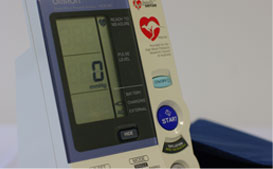Multiple System Atrophy (MSA)
What is Multiple System Atrophy?
Multiple System Atrophy (MSA) is a rare degenerative condition that characteristically affects the parts of the nervous system involved in movement, balance and involuntary function of various organs (e.g. blood pressure, heart rate, digestion, urination). Together with Progressive Supranuclear Palsy and Corticobasal Syndrome, these conditions are referred to as “atypical parkinsonism”.
Who does Multiple System Atrophy affect and what causes it?
MSA affects men more so than women and symptoms tend to appear around 50 years of age on average. It is caused by the abnormal deposition of a protein called alpha-synuclein in brain and nerve cells.

What are some symptoms of Multiple System Atrophy?
The earliest symptoms of MSA are often impairment to involuntary functions, particularly problem with bladder control, constipation, erectile dysfunction and dizziness due to drop in blood pressure on arising from lying or sitting. MSA can also cause slowing of movements, tremor and muscle stiffness, mimicking Parkinson’s disease. A variant of MSA causes incoordination and clumsiness. MSA is often associated with sleep disturbances (acting out dreams) and can lead to difficulty breathing and gasping.
Is there any treatment for Multiple System Atrophy?
Symptoms of MSA progress over time and at present, there is no cure or treatment that slows down the progression of disease. Current available treatments therefore, aim at the relief of symptoms. Medications to raise blood pressure may help to reduce dizziness and fainting upon standing. Parkinson’s disease medications can assist with stiffness and slowness of movements. Involvement of other specialists such as cardiologist, urologist and sleep/lung specialist is often required to manage the symptoms of MSA. In addition, involvement of other health care professionals including speech pathologist, physiotherapist and occupational therapist allow maintenance of function and independence.

